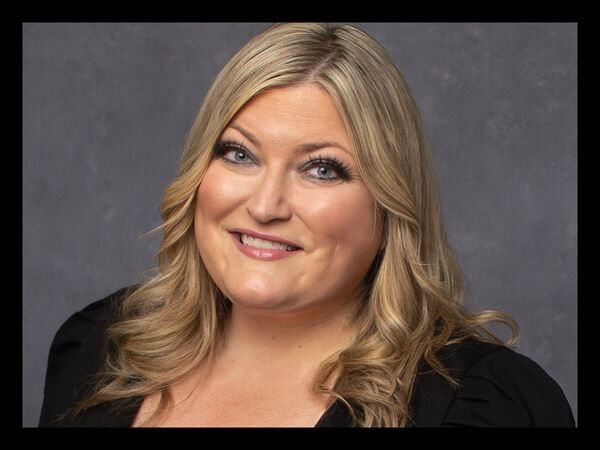Moldova’s ruling pro-EU party leader says high-stakes election will define the country's future
News > Politics & Government News

Audio By Carbonatix
10:34 AM on Thursday, September 25
By STEPHEN McGRATH
CHISINAU, Moldova (AP) — The leader of Moldova’s pro-European ruling party is blunt about the stakes in Sunday’s tense parliamentary election: a continued path toward the European Union or a country brought back under Russia’s orbit.
“The results of these elections will define the country’s future not just for the next four years, but for many, many years ahead,” Igor Grosu, the president of the ruling Party of Action and Solidarity, or PAS, told The Associated Press on Thursday in the capital, Chisinau.
The party he leads has held a strong parliamentary majority since 2021, but risks losing it in Sunday’s vote to elect a new 101-seat legislature, with no other viable pro-European alternatives on the ballot but several Russia-friendly ones.
Grosu, who is also the speaker of parliament, said Sunday’s vote is no longer just a choice between East and West, but a choice between peace and war. “Peace means the EU, and war means Russia," he said. “Things have become very stark, very simplified.”
“These are existential elections, at a crossroads,” he added. "There’s no middle path, no middle option.”
The outcome of Sunday’s high-stakes election could at least in part depend on how effective Russia’s alleged “hybrid war” to undermine support for PAS has been in favor of political forces that would slow down or potentially derail Moldova’s EU path.
“We understand this, our opponents understand this, and by opponents, I don’t just mean internal ones,” Grosu said. “I mean the Russian Federation and all the criminals and propagandists gathered around it … The stakes are very high.”
Grosu's party has campaigned on a pledge to continue Moldova’s path toward EU membership by signing an accession treaty by 2028, doubling incomes, modernizing infrastructure, and fighting corruption.
The PAS leader’s comments come a day after Moldova’s Prime Minister Dorin Recean warned that Russia is spending hundreds of millions of euros to “take power in Chisinau” to affect the outcome of Sunday’s vote, describing it as a “siege on our country.”
The alleged schemes include a large-scale vote-buying operation, more than 1,000 cyberattacks on critical government infrastructure so far this year, a plan to incite riots around Sunday’s election and a sprawling disinformation campaign online to sway voters.
Moscow has repeatedly denied meddling in Moldova. In a statement Thursday, Russia’s Ministry of Foreign Affairs dismissed allegations of Russian interference in Moldova’s elections as “anti-Russian” and “unsubstantiated.”
“We see that Moldovan officials’ Russophobic attacks are neither understood nor supported by the Moldovan people,” said spokeswoman Maria Zakharova.
Moldovan authorities have intensified their crackdown in recent months. This week, 74 people were detained during 250 raids as part of an investigation into an alleged Russia-backed plan to incite mass riots and destabilize the country. One was detained over the financing of a political party allegedly linked to Russia through cryptocurrencies.
On Thursday, Britain’s Defense Ministry also issued a statement saying that “Russia is almost certainly conducting an extensive interference campaign” in Moldova ahead of the election.
“Should the ruling party win a majority of seats in the election, Russian-backed information actors will almost certainly promote narratives undermining the integrity of the election,” the statement read.
Sunday’s vote will also be held less than a year after Moldovans voted narrowly in favor of securing the country’s EU path, the same day pro-Western President Maia Sandu won a second term in a presidential vote. But those votes were also overshadowed by widespread claims of Russian interference and a massive vote-buying scheme, which Moscow denied.
Grosu says that Moldovan authorities are better prepared for Sunday’s vote to counter the alleged interference campaign, but that it is an uphill battle.
“Unfortunately, Russia has enormous resources: financial, human, logistical, and intelligence that it uses,” he said. “But I believe in the determination and mobilization spirit of Moldovans, at home and in the diaspora.”
A key opponent of PAS in Sunday’s election is the Russia-friendly Patriotic Electoral Bloc, or BEP, a grouping of four political parties. The bloc has campaigned on promising good relations with the EU and “normalizing” ties with Russia, "permanent neutrality" and a “state that serves the people, not officials.”
On Thursday, the Chisinau Court of Appeal granted a request from the justice ministry to restrict the Heart of Moldova party's activities for 12 months, which was part of the BEP. The court's decision came after searches earlier this month on party members that led to allegations of voter bribery, illegal party financing, and money laundering.
Irina Vlah, leader of the Heart of Moldova, called the move a “blatant political ploy” to allegedly silence her party.
“For four weeks straight, we’ve been subjected to attacks — vile, dirty, cynical,” she wrote on Facebook. “But if PAS is hoping to intimidate or break us, they’re sorely mistaken.”
It is unclear whether the decision can be appealed or how it will affect the election.
The court's decision came the same day Vlah was banned from entering Poland, Latvia, and Estonia.
Poland’s Ministry of Foreign Affairs said the five-year ban was for “helping the Russian Federation interfere in the preparations for the parliamentary elections.”
Also on Thursday, Vladimir Plahotniuc, a fugitive Moldovan oligarch implicated in a $1 billion bank fraud who fled Moldova in 2019, was extradited from Greece after being detained there in July.
“The one who handcuffed an entire country through intimidation, fabricated cases, illegal takeover of businesses, and enrichment at the expense of the people is now brought in handcuffs before the justice system of Moldova,” Prime Minister Recean said in a post on Facebook. “After 4 years, we see that the criminals no longer control Moldova.”
____
Katie Marie Davies contributed to this report from Manchester, U.K.












